Watermelon Nutrition 101: A Guide to This Refreshing Fruit
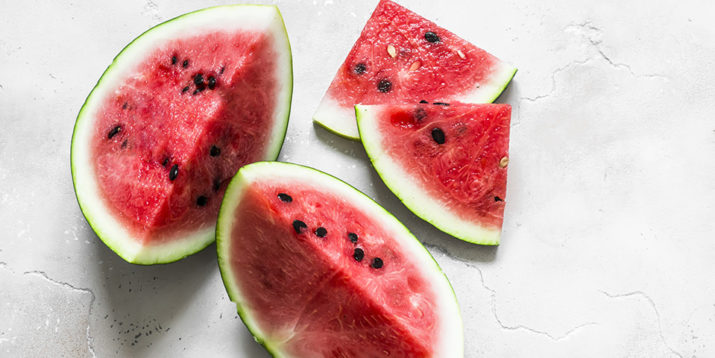
Nothing screams “summer” like biting into a slice of juicy watermelon, even when that season has long since passed.
Thanks to its sweet flavor and high water content, watermelon has earned its place at every picnic and poolside barbecue.
Still, there’s more to this melon than meets the eye.
Keep reading to learn about watermelon nutrition, uncover the benefits of watermelon, and find out why it should be part of your diet long after summer ends.
Watermelon Nutrition Facts
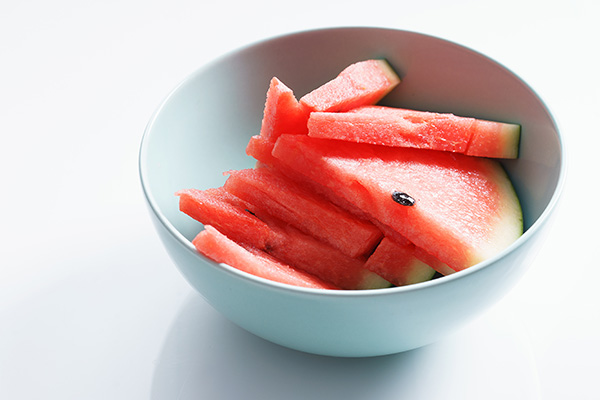
Here’s a look at watermelon nutrition facts, according to the U.S. Department of Agriculture.
1 cup (152 grams) of diced watermelon contains:
- Calories: 46
- Protein: 1 g
- Fat: 0 g
- Carbs: 12 g
- Fiber: 1 g
- Vitamin C: 12 milligrams, or 16% of the Recommended Dietary Allowance for women (ages 31-50) and more than 13% of the RDA for men (ages 31-50).
- Vitamin A: 43 micrograms, or over 6% of the RDA for women 31-50 and almost 5% for men 31-50.
- Magnesium: 15 mg, or almost 5% of the RDA for women 31-50 and almost 4% for men 31-50.
- Potassium: 174 mg, almost 7% for women 31-50 and about 5% for men 31-50.
Watermelon Benefits
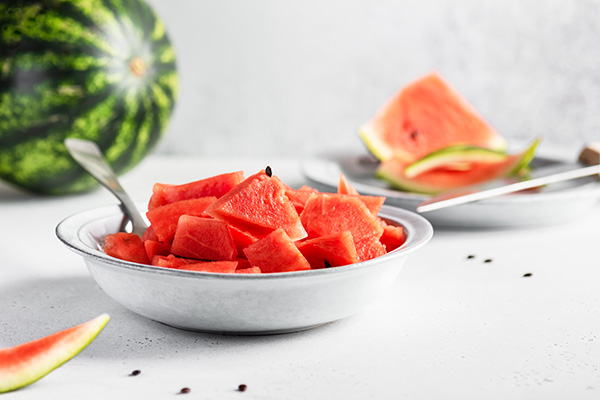
Beyond watermelon nutrition, let’s break down a few of the perks this fruit can offer.
1. Keeps you hydrated
While drinking water helps you stay hydrated, eating foods that have a high water content can also help.
Watermelon contains about 92% water, making it one of the most hydrating foods you can reach for.
But water isn’t the only feature that makes watermelon so handy for a hot day.
It also contains potassium, an electrolyte and essential mineral that helps keep your body’s fluid levels balanced, says Holly Klamer, M.S., R.D.N., a Michigan-based registered dietitian.
Mainly, potassium can balance excess sodium in your diet and prevent fluids from building up inside your body (known as water retention).
2. Rich in plant compounds
Watermelon is a great source of beneficial plant compounds like carotenoids.
These are a group of pigments found in fruits and vegetables and include lycopene, lutein, alpha- and beta-carotene, and many more.
The primary carotenoid in watermelon is lycopene. This compound is responsible for giving foods like watermelon and tomatoes their vibrant red color.
“The deeper the red color of the watermelon, the higher the potential for lycopene content,” Klamer says.
Lycopene, like its carotenoid siblings, has antioxidant-like properties.
3. May help ease muscle soreness
Watermelon contains citrulline, an amino acid that may help promote healthy blood flow, stimulate the building of new proteins, and maintain the integrity of other amino acids.
Thanks to these qualities, citrulline may offer help for post-workout muscle soreness.
Research suggests that watermelon juice helps your body better absorb citrulline than supplements alone.
One small study tasked athletes with drinking natural watermelon juice, watermelon juice enriched with citrulline, and a citrulline supplement after a maximum-effort cycling workout.
Not only did the athletes absorb more citrulline when it was combined with watermelon juice, but both watermelon juices were a greater help with recovery heart rate and muscle soreness after 24 hours than citrulline alone.
Still, we need (a lot) more research before making any conclusions.
How to Eat Watermelon
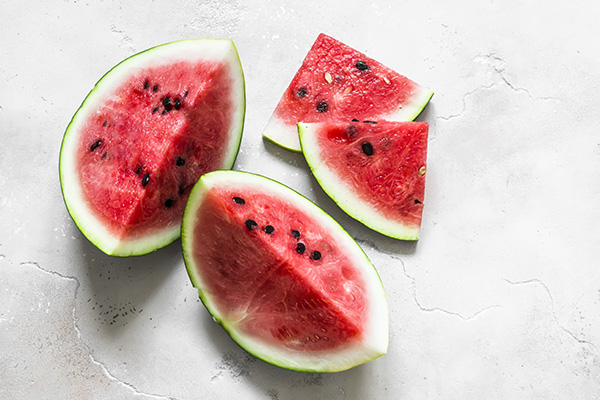
The quickest route to enjoying watermelon is to cut it into slices and eat it right off the rind.
If you’re willing to spend a few extra minutes, watermelon can make a juicy, refreshing addition to snacks and meals.
- Combine cubed watermelon with fresh arugula, feta cheese, and mint in this quick Watermelon and Arugula Salad.
- Sprinkle thick wedges of watermelon with chili powder, lime juice, and a pinch of flaky salt.
- Blend it into a creamy, refreshing drink like this Watermelon Mint Lemonade Shakeology.
- Swap standard ice cubes with frozen watermelon cubes to add a hint of sweetness to plain or sparkling water.
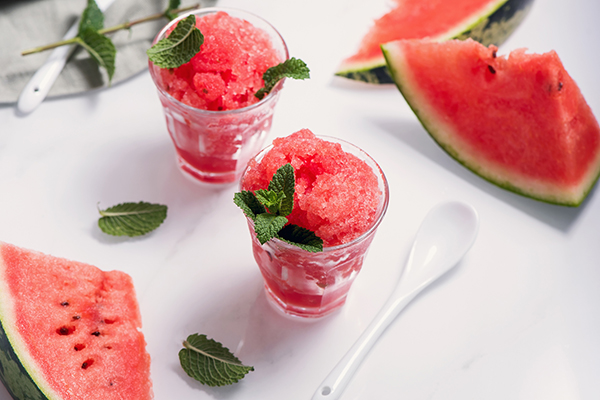
Here are some more tasty watermelon recipes to try:
Tropical Watermelon Splash Shakeology
Watermelon, Feta, and Olive Salad
Looking for more expert nutrition information, recipes, and meal preps? Head over to BODNutrition.com and learn how to eat healthy for the long-term with our two nutrition programs, 2B Mindset and Portion Fix.
